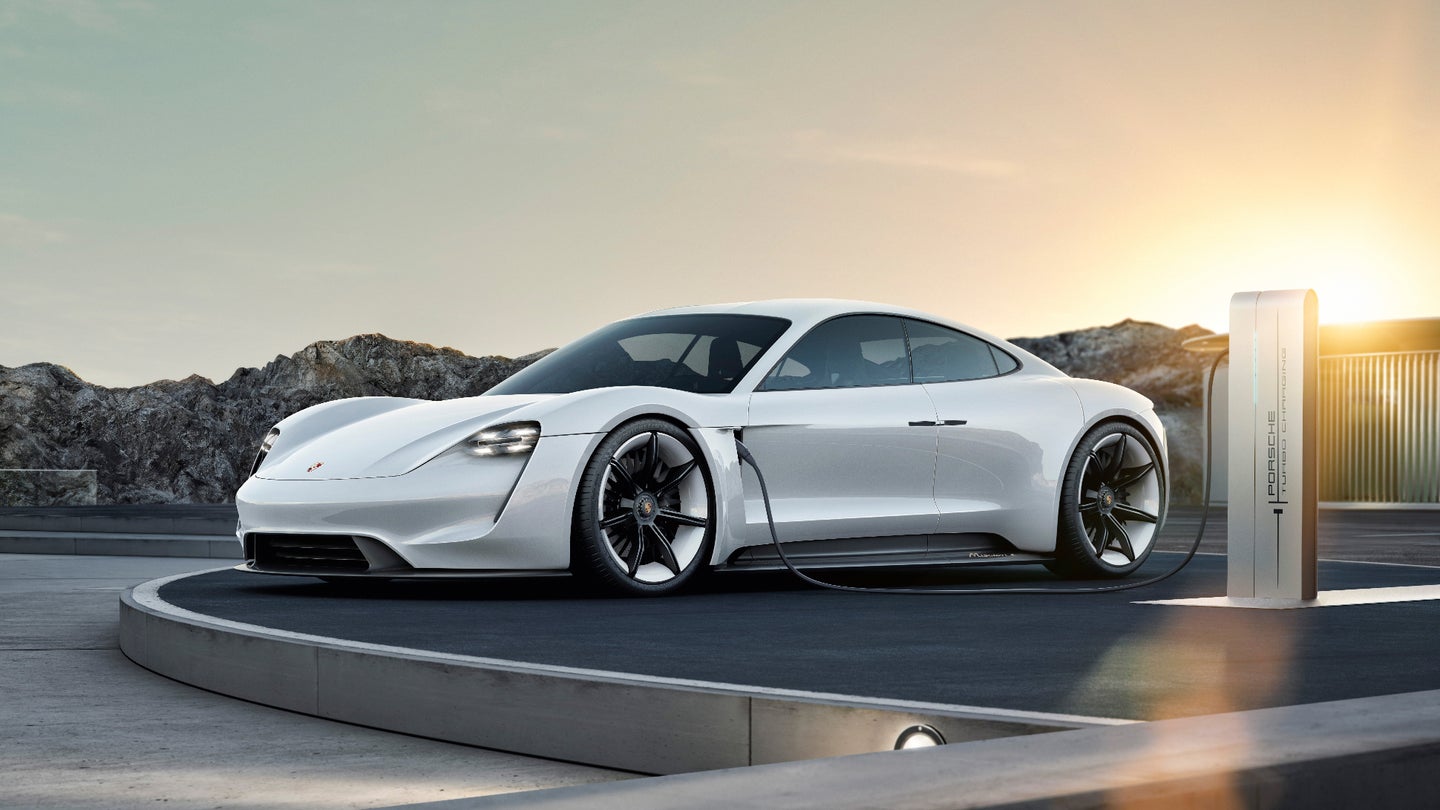BMW, Porsche Reveal Prototype EV Fast Charger That Gives 62 Miles of Range in 3 Minutes
Not only that—it’s three times more powerful than anything on the market today.

German automakers BMW and Porsche along with technical partners Siemens, Allego, and Phoenix Contact E-Mobility revealed Wednesday a 450-kilowatt (kW) electric vehicle fast charger prototype.
Installed on the side of the A8 highway between Ulm and Augsburg in Bavaria, Germany, the charger uses a European Type 2 Combined Charge System (CCS) plug and is compatible with both 400- and 800-volt battery systems. Its maximum output of 450 kW is at least three times that of other DC fast chargers in use today. It charged a Porsche demo car—a Panamera with early Taycan prototype parts—with 100 kilometers (62 miles) of range in under three minutes, possible thanks to both the high input wattage and advanced cooling systems on the car's 90 kilowatt-hour (kWh) battery.
Use of the charger is free for the general public, both because of a €7.8 million EUR ($8.9 million USD) subsidy from the German Federal Ministry of Transport and Digital Infrastructure, but also to put the system through as rigorous a testing program as possible, as confirmed by a Porsche spokesperson to The Drive. If testing proves successful, the 450-kw chargers could follow the 350-kw units being installed by partnered charging firm Ionity.
Competing charging infrastructure systems include those of Electrify America—which completed installation of several 350-kW chargers in California over the weekend—and Tesla's Supercharger network, chargers of which feature a maximum output of 145 kW, though Tesla vehicles cannot as of yet accept more than 120 kW input. Though Tesla's current chargers are weak by comparison, it promises to expand its network to make access convenient for more than 95 percent of its customer base in 2019. This will also come with the rollout of "Supercharger V3," which Tesla CEO Elon Musk has hinted to be considerably more powerful than 350 kW.
Charger specification wars can be fought on paper, though what matters to electric vehicle owners on long road trips is how well infrastructure supports their travels. Though charge port standardization and charger construction projects on a continental scale make longer trips easier for EV owners, fast chargers are still nowhere near as prolific as gas stations, meaning long-distance EV travel often has to adhere to where infrastructure is present.
Strong charging infrastructure is also a possible crutch for automakers whose electric powertrain technology trails that of industry leaders Tesla, General Motors, and Hyundai/Kia. Some automakers plan to support low-range EVs with powerful fast-charging, which keeps their products relevant while they bring powertrain efficiency up to scratch. Both are equally important to making EVs viable choices for long-distance trips, so automakers will have to walk both paths to stay competitive in an increasingly competitive EV market.
